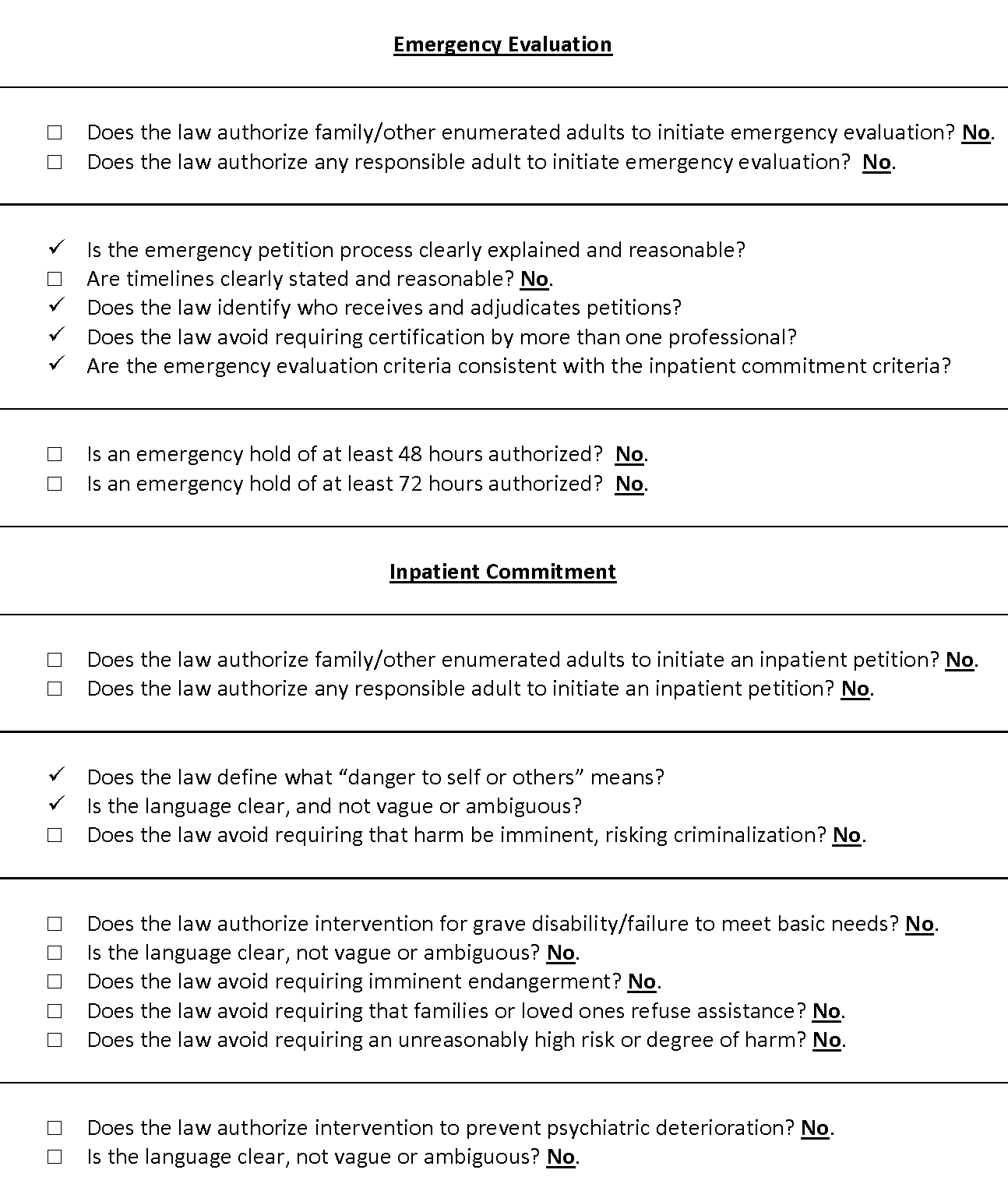Family Resources in Resources in Delaware
- Division of Substance Abuse and Mental Health (dhss.delaware.gov) Resources and contacts
- Delaware 211 (delaware211.org) Find financial assistance, mental health resources, and medical and food programs listed by zip code
- Mental Health Association in Delaware (mhainde.org) Nonprofit provides education, support, and advocacy groups online or in person
- An Overview of the Guardianship Process (courts.delaware.gov) Flow chart of steps to guardianship in New Castle, Kent, and Sussex counties
- Mental Health Resources in Delaware (rtor.org) Nonprofit provides an online form for personalized assistance from a resource specialist
- NAMI Delaware (namidelaware.org) Support groups, training, information
- State Council for Persons with Disabilities (scpd.delaware.gov) Protection and advocacy for individuals with disabilities
- Homeless Information: Delaware | U.S. Department of Housing and Urban Development (hud.gov/states/delaware) Shelter information, foodbanks, and financial assistance and programs by city
- Delaware Inmate Search (statecourts.org) Find inmate records by name or case number
- (statecourts.org) (statecourts.org) Find inmate records by name or case number
- Delaware State Bar Association (dsba.org) Legal assistance
How many people in Delaware have SMI?
individuals with severe mental illness.
individuals with SMI who receive treatment in a given year.
of the adult population is estimated living with a SMI in the United States.
State psychiatric hospital beds in Delaware
2023 total beds: 124
- Civil beds: 82
- Forensic beds: 42
2023 beds per 100,000 people: 12.2
Click here for more information about state psychiatric hospital beds in Delaware.
A minimum of 50 beds per 100,000 people is considered necessary to provide minimally adequate treatment for individuals with severe mental illness. Delaware fails to meet this minimum standard.
For Additional Information
Data is a powerful tool to advocate for change. Curious about a specific data point in your state? Reach out to us at ORPA@treatmentadvocacycenter.org
Fast Facts on SMI in Delaware
Deinstitutionalization, outdated treatment laws, discriminatory Medicaid funding practices, and the prolonged failure by states to fund their mental health systems drive those in need of care into the criminal justice and corrections systems.
14%
673
124
5 to 1
2021 Delaware State Mental Health Agency's expenditures
Every state receives block grant funding from the federal government to provide mental health services to their community. Below is some information about how these dollars are spent and compares to other state spending.
$110,951,027
32%
$10,729
0.8%
Delaware's Treatment Laws
DEL CODE ANN. tit. 16 § 5001(8). "Emergency detention" and “emergently detained” means the process whereby an adult who appears to have a mental condition, and whose mental condition causes the person to be dangerous to self or dangerous to others, and who is unwilling to be admitted to a facility voluntarily for assessment or care, is involuntarily detained for such evaluation and treatment for 24 hours in a designated psychiatric facility because other less restrictive, more community integrated services are not appropriate or available to meet the person's current mental health care needs. DEL CODE ANN. tit. 16 § 5004 (a). Any person who believes that another person's behavior is both the product of a mental condition and is dangerous to self or dangerous to others may notify a peace officer or a credentialed mental health screener or juvenile mental health screener and request assistance for said person. Upon the observation by a peace officer or a credentialed mental health screener or juvenile mental health screener that such individual with an apparent mental condition likely constitutes a danger to self or danger to others, such person with an apparent mental condition shall be promptly taken into custody for the purpose of an emergency detention by any peace officer in the State without the necessity of a warrant. Any such observation shall be described in writing and shall include a description of the behavior and symptoms which led the peace officer or credentialed mental health screener or juvenile mental health screener to such conclusion. The documentation required herein shall set forth any known relationship between the person making the complaint and any other connection to the person with an apparent mental condition and, if known, the name of the nearest known relative. DEL CODE ANN. tit. 16 § 5004(b). An individual may be held on an emergency detention if it reasonably appears to a credentialed mental health screener … that the person is acting in a manner that appears to be dangerous to self or dangerous to others[.] DEL CODE ANN. tit. 16 § 5001(2). “Credentialed mental health screener” means an individual who is: a. A psychiatrist; or b. A licensed mental health professional who is credentialed by the Department to provide emergency screening services and evaluation of the need for involuntary observation and treatment for a mental condition; or c. An unlicensed mental health professional who works under the direct supervision of a psychiatrist and who is credentialed by the Department to provide emergency screening services and evaluation of the need for involuntary observation and treatment for a mental condition; or d. A physician with a valid State of Delaware license to practice medicine and who is credentialed by the Department to provide emergency screening services and evaluation of the need for involuntary observation and treatment for a mental condition; or e. A physician with a valid license to practice medicine who works in a United States Department of Veterans Affairs Medical Center, located in the State of Delaware, and who is credentialed by the Department to provide, for patients seen in the physician's employment by the United States Department of Veterans Affairs Medical Center, emergency screening services and evaluation of the need for involuntary observation and treatment for a mental condition.
DEL. CODE ANN. tit. 16 § 5008(a). If an involuntary patient has not been discharged by the hospital by the end of the 48 hour provisional admission period, the hospital shall file a verified complaint for involuntary civil commitment in the Superior Court or in the Family Court if the involuntary patient would otherwise be amenable to Family Court jurisdiction under other provisions of law. DEL CODE ANN. tit. 16 § 5011(a). An individual shall be involuntarily committed for inpatient treatment only if all of the following criteria are met by clear and convincing evidence: (1) The individual is a person with a mental condition; (2) Based upon manifest indications, the individual is: (i) dangerous to self; or (ii) dangerous to others; (3) All less restrictive alternatives have been considered and determined to be clinically inappropriate at the time of the hearing; and (4) The individual has declined voluntarily inpatient treatment, or lacks the capacity to knowingly and voluntarily consent to inpatient treatment. When evaluating capacity, the court shall consider an individual’s ability to understand the significant consequences, benefits, risks, and alternatives that result from the individual’s decision to voluntarily request or decline inpatient treatment. DEL CODE ANN. tit. 16 § 5001(3). "Dangerous to others" means that by reason of mental condition there is a substantial likelihood that the person will inflict serious bodily harm upon another person within the immediate future. This determination shall take into account a person's history, recent behavior and any recent act or threat. DEL CODE ANN. tit. 16 § 5001(4) “Dangerous to self" means that by reason of mental condition there is a substantial likelihood that the person will imminently sustain serious bodily harm to oneself. This determination shall take into account a person’s history, recent behavior, and any recent act or threat.

DEL CODE ANN. tit. 16 § 5013(a). A person shall be involuntarily committed by the court for outpatient treatment over objection only if all of the following criteria are satisfied by clear and convincing evidence: (1) The person is 18 years of age or older. (2) The person has a documented mental condition. (3) The person is reasonably expected to become dangerous to self or dangerous to others or otherwise unlikely to survive safely in the community without treatment for the person’s mental condition. (4) The person is currently refusing to voluntarily participate in the treatment plan recommended by the person’s mental health treatment provider or lacks the capacity to determine whether such treatment is necessary. (5) The person has a documented history of lack of adherence with recommended treatment for the mental condition, or poses an extreme threat of danger to self or danger to others based upon recent actions, that has either: (i) Resulted in a deterioration of functioning that was observed to be dangerous to the individual’s personal health and safety; or (ii) Resulted in a deterioration of functioning that was observed to be imminently dangerous to self or dangerous to others, including but not limited to suicidal ideation, violent threats, or violence towards others. (6) All less restrictive treatment options have been considered and have either been determined to be clinically inappropriate at this time or evidence is offered to show that the person is not likely to adhere to such options.

Recommended updates to treatment laws
- 1
Amend 16 Del. C. § 5004 to authorize citizen right of petition for at least enumerated citizens, preferably any responsible adult, for emergency evaluation
- 2
Amend 16 Del. C. § 5004 to include reasonable timelines for filing a petition for emergency evaluation
- 3
Amend 16 Del. C. § 5005(e) to extend duration of emergency evaluation hold to 72 hours or more
- 4
Amend 16 Del. C. §§ 5007 and 5008 to authorize citizen right of petition for at least enumerated citizens, preferably any responsible adult, for inpatient commitment
- 5
Amend 16 Del. C. § 5001(3) and 5001(4) to remove requirement if imminence to meet criteria for danger to self or others
- 6
Add psychiatric deterioration criteria
- 7
Amend 16 Del. C. § 5007 to authorize citizen right of petition for at least enumerated citizens, preferably any responsible adult, for outpatient commitment
- 8
Amend 16 Del. C. § 5013 to remove requirement for either refusal of voluntary services or current incapacity to meet criteria for outpatient commitment
- 9
Adopt procedural detail for outpatient commitment, including provisions establishing timelines, responsible entities, periodic reporting to court, renewal of orders and a requirement to submit a written treatment plan to the court
- 10
Amend 16 Del. C. § 5013(c) to extend duration of outpatient order beyond 90 days
- 11
Amend 16 Del. C. § 5013(c) to extend duration of continued orders to or beyond 180 days
